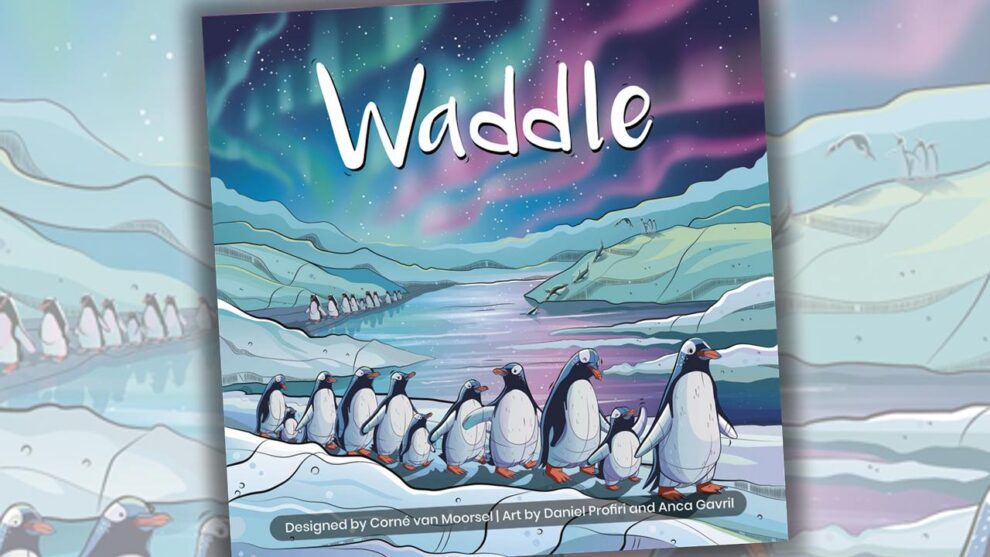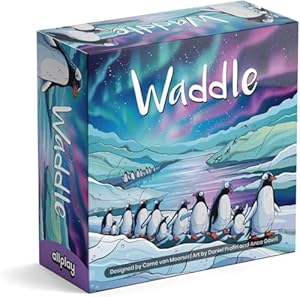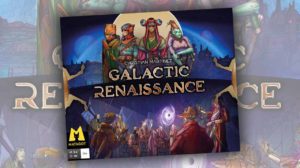Multiplayer abstract games are notoriously difficult to design. Perfect information competition becomes muddied by the vagaries of turn order, suboptimal player blunders, and just flat out boring decision-making.
Waddle is none of those, mainly because it approaches the problems of abstract multiplayer game design head on, especially how it engages with turn order puzzles. Plus, it’s cute and plays in 10 minutes.
Lineage
Waddle is a remake of an older game called Gypsy King, which was reset and renamed for obvious reasons, and instead of trafficking in stereotypes that were completely unnecessary for an abstract game, we’re now just doing penguins, which is a much better idea.
What it is
Waddle is an area majority game, but like another great little area majority game, Rumble Nation, the majorities are more than meets the eye. Depending on player count, you have a hex map of different sizes. There are two different types of spaces: white ones which will soon house penguins, and water ones with numbers inside. At the beginning of the game, after determining a random turn order and placing player-colored marbles in a little cardboard chute, a marker hex is placed on the water hex with the number 1. Then, each player has two choices: place or scout.
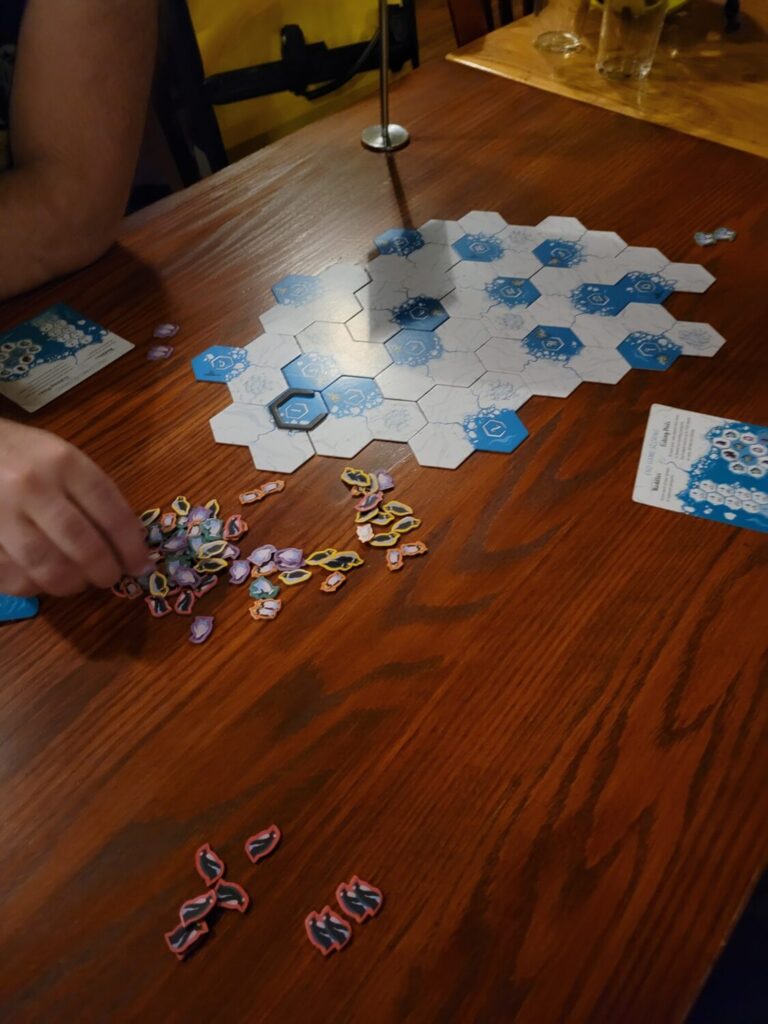
When they place, they put a penguin piece in one of the white hexes adjacent the current water hex. Then, they move their marble to the end of the marble chute. The next marble signals the next player’s turn. They make the same choice. If a player instead chooses to scout, they move their marble to the chute next to the current turn’s chute, securing the first player spot for the next “round” of sorts.
That new round occurs when all the white spaces around the current water hex are filled with one penguin apiece. Then the marker hex moves to the water hex numbered 2, which may be somewhere else on the board. That’s mostly it. There are a few more rules about everybody scouting and the last player filling all the remaining spaces, but you do this sequence until every white hex is full. Then, it’s time for scoring.
Scoring
Scoring happens at the end of the game, and players score for two things: waddles and majorities. Every contiguous group of same-colored penguins (the aforementioned waddle) uses triangular number scoring (1 penguin = 1 point, 2 penguins = 3 points, 3 penguins = 6 points, and so on).
Then, for each contiguous group of water, players win points if there are fish in the water. One space might have a single 7 point fish, while another has two spaces, one with 5 and the other with 3 points. The player with the majority of penguins around the perimeter of the water wins the fish with the largest amount of points, with friendly ties. Second place gets the smaller amount of points if it exists, and so on.
Depth of decision-making: the game
What makes Waddle work is how overstuffed it is with decisions. With every single placement, you’re not only thinking about your future point possibilities, and where you might be able to slip in a big move; you’re also considering if you need to keep all the other players from winning as well. The majorities are a sequencing puzzle—but very often, you have to break that sequence to stop someone from getting a massive giant interconnected 36 point waddle. Giving players the ability to control turn order with each decision is delightful, and the game punches way above its weight. Additionally, each player has two 2-penguin tokens that they use over the course of the game, and when to deploy this extra firepower is a great decision.
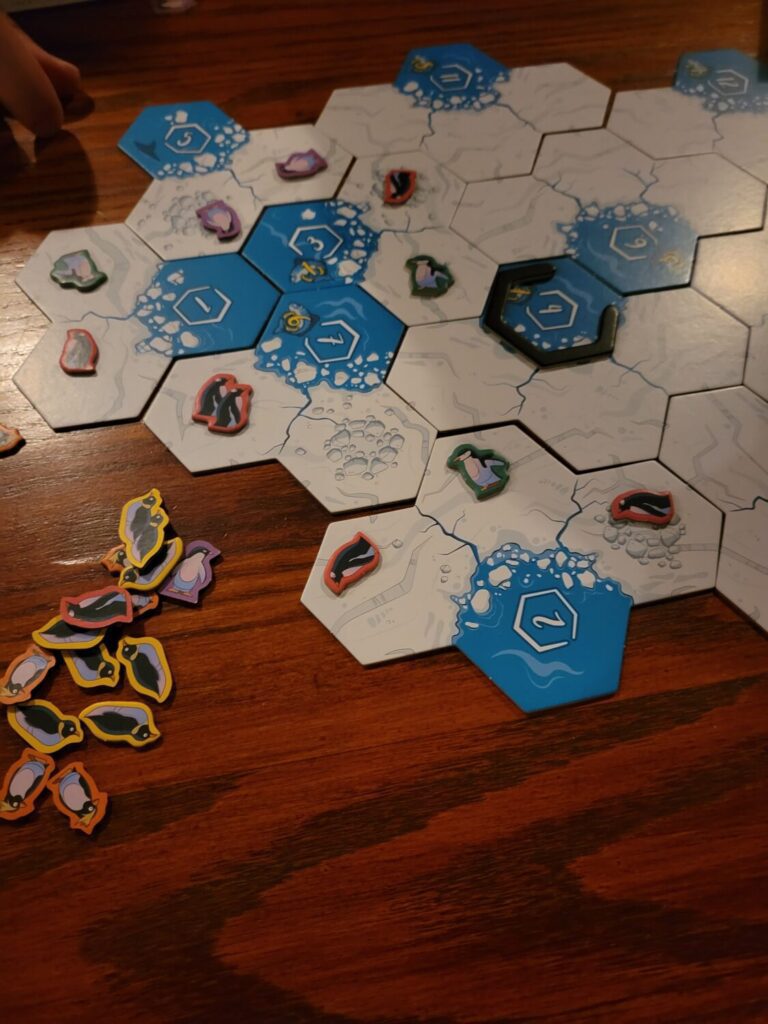
Unlike the original game, this game doesn’t feature a two-round competition. You place all the penguins, and then you’re done, which I’m perfectly happy with. Play best of three if you want a longer game. I’m also not a fan of the extra expansion stuff that is included with the game. Most of it compromises the integrity of what is, in my estimation, the perfect expression of what a light game like this can be.
So, waddle your way over to this small box and start dueling for your position on the ice floe.


